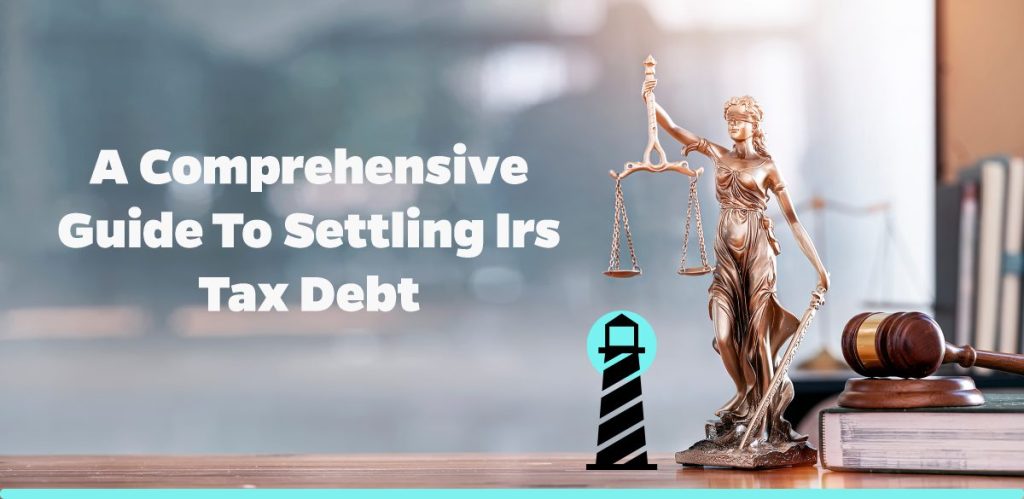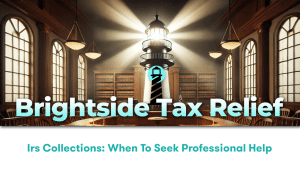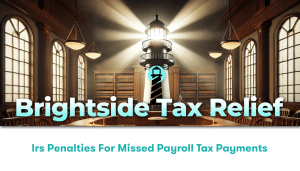A Comprehensive Understanding of IRS Tax Debt
Every year, millions of Americans struggle with the common problem of not being able to pay their IRS tax debts in full. This problem could arise due to a variety of reasons such as financial hardship, unexpected expenses, or even simple mismanagement of personal finances. Regardless of the reasons, what’s important is to find a resolution to your tax debts to avoid accruing penalties and added interest. The good news is that you can settle IRS tax debt in various ways. In this comprehensive guide, we at Brightside Tax Relief LLC will provide relevant and valuable information on how to handle and settle your IRS tax debts.
Understanding IRS Tax Debt
Before we delve into the methods of settling IRS tax debt, it’s fundamental to understand what it entails. IRS tax debt is the amount of money you owe to the Internal Revenue Service (IRS) due to unpaid taxes. Several factors can lead to the accumulation of tax debt. These may include unpaid income taxes, underreported income, penalties from non-filing of annual returns, and interest accrued on unpaid taxes over time.
Consequences of Unsettled IRS Tax Debt
Unsettled IRS tax debt can lead to significant legal and financial implications. The IRS has the authority to place a tax lien on your properties, seize assets, withdraw funds directly from your bank account, garnish wages, and utilize other collection actions until the debt is fully paid. In extreme cases, not settling your tax debt could result in imprisonment. However, the IRS is usually willing to work with taxpayers to resolve their tax debt issues in less severe manners.
Ways to Settle IRS Tax Debt
Knowing the potential consequences of unsettled tax debts, it becomes imperative to strategize on settling your IRS tax debt. The following are some of the possible options:
- Installment Agreement: This is a monthly payment plan for paying off the IRS tax debt. If you owe $50,000 or less, you can apply for an Installment Agreement.
- Offer in Compromise (OIC): An OIC is an agreement between a taxpayer and the IRS that settles a taxpayer’s tax liabilities for less than the full amount owed.
- Temporarily Delay the Collection Process: If the IRS determines a taxpayer is unable to pay, it may delay collection until the taxpayer’s financial condition improves.
- Not Currently Collectible: If you are experiencing a financial hardship that leaves you unable to pay your tax debt, the IRS may declare you “Not Currently Collectible.”
- Request a waiver of penalties: The IRS may also waive penalties for taxpayers who qualify for the first-time penalty abatement (FTA) waiver.
You should always consult with a tax professional to determine which of these options is best suited to your specific situation.
The Role of Brightside Tax Relief LLC in Settling Your IRS Tax Debt
Brightside Tax Relief LLC is committed to helping individuals find resolution with their IRS tax debt. We offer services such as tax consultation, preparation of tax returns, filing for OICs, setting up Installment Agreements with the IRS, and more. We work vigorously with the IRS to determine the best solution for our clients, relieving them of the stress and hassle.
Conclusion
Although navigating your way out of IRS tax debt may seem like a daunting task, with the right information and assistance from tax professionals, you can successfully settle your tax debt. Contact Brightside Tax Relief LLC today and let our team of experienced professionals guide your journey to financial relief and a tax debt-free future. For more information, please visit the IRS website.




